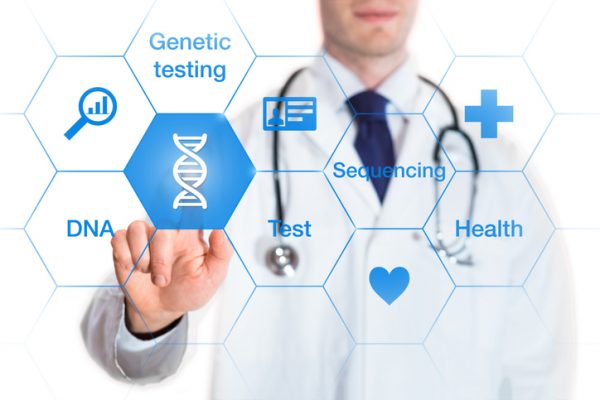The global molecular diagnostics market for cancer care was valued at $1.6 billion last year, up more than 10 percent from 2018. That’s just a fraction of the entire molecular diagnostics field, but still staggering for a medical arena that’s still in its infancy.
It’s even more impressive when you look at how few physicians are actually ordering molecular diagnostics tests for cancer patients. Some studies have shown that despite 75 percent of physicians believing that genomic testing improves patient outcomes, only four percent routinely order a molecular diagnostic test.
Imagine what the molecular diagnostics market would look like if all physicians who believed in the value of genomic testing were actually ordering it. How do we get there? If physicians know patients benefit from molecular diagnostics, why isn’t it a routine part of cancer care?
The usability bottleneck
With all the talk of data-driven innovation in health care these days, there’s a critical component that’s often being left out of the conversation. Collecting data requires building tools that physicians and patients will want to use. Think about the immediate benefits of wearables that alert you to physical irregularities or remind you of medication schedules.
However, physicians are already overburdened with data input, a task that federal regulations prevent them from delegating. It’s no wonder that they are resistant to outside to demands to collect more data or increase testing — unless it adds obvious value to their clinical care.
No one denies the potential value of molecular risk assessment in determining drug therapies for patients. The problem is that health care innovators have yet to make molecular diagnostics truly user-friendly.
Research shows that less than 50 percent of physicians feel confident in their ability to interpret molecular test results, and a mere 10 percent are confident in their ability to use test results to guide the process of prescribing treatment. For molecular diagnostics to truly take off, we need to fix that — with innovations that cater to the clinical setting.
Simpler solutions
There’s nothing simple about genomic testing. And molecular diagnostic companies are well-aware of the challenge they face in trying to make results not only readable but actionable. Their work will allow us to identify cancers sooner, personalize treatment, save millions of lives, and hopefully beat cancer one day.
But the physicians, scientists and companies leading the charge on genomic testing can’t go it alone. As we are seeing elsewhere in the healthcare space, there’s a need for developers and designers who can merge their skills with the emerging science, and create products that add value to the patient-doctor relationship.
For molecular diagnostics, innovation means adding an interactive layer between testing companies and cancer clinics that guides physicians and patients through the test results, drawing on an expanding universe of data to make treatment recommendations and identify targets for therapy.
We are already seeing oncology innovators searching for new approaches to collecting data on patients. For instance, cancer researchers in Central Florida are partnering with self-insured employers to enroll patients in innovative treatment programs, with plans to expand their patient pool in years to come.
These kinds of efforts are a start. But an opponent as aggressive as cancer can only be fought with scalable solutions. We need to develop tools and services that must be used if physicians want to claim that they are providing top-flight care.
Putting physicians first
Molecular diagnostics companies have done much of the work already. Almost 100% of physicians view molecular risk assessment as having the potential to play a crucial role in determining drug therapies for patients. That’s a strong position for companies trying to sell those physicians on new products.
But design is crucial. Silicon Valley has struggled to put physicians first during its early forays into the healthcare space. We need to design out from cancer clinics to create tools that immediately help oncologists treat patients, rather than expect adoption based on the tremendous aggregate potential of whatever we are selling.
Here’s the simple truth: Data will only drive health care information if it is collected. Molecular diagnostics companies have laid the foundation for nothing short of a revolution in cancer care — it’s time for the medtech sector to develop tools to make genomic testing accessible to the masses.
Carla Balch leads the healthcare software and services division of Aranscia, which also owns AccessDx Laboratory. Previously, she was founder and CEO of Spesana.
This post appears through the MedCity Influencers program. Anyone can publish their perspective on business and innovation in healthcare on MedCity News through MedCity Influencers. Click here to find out how.












